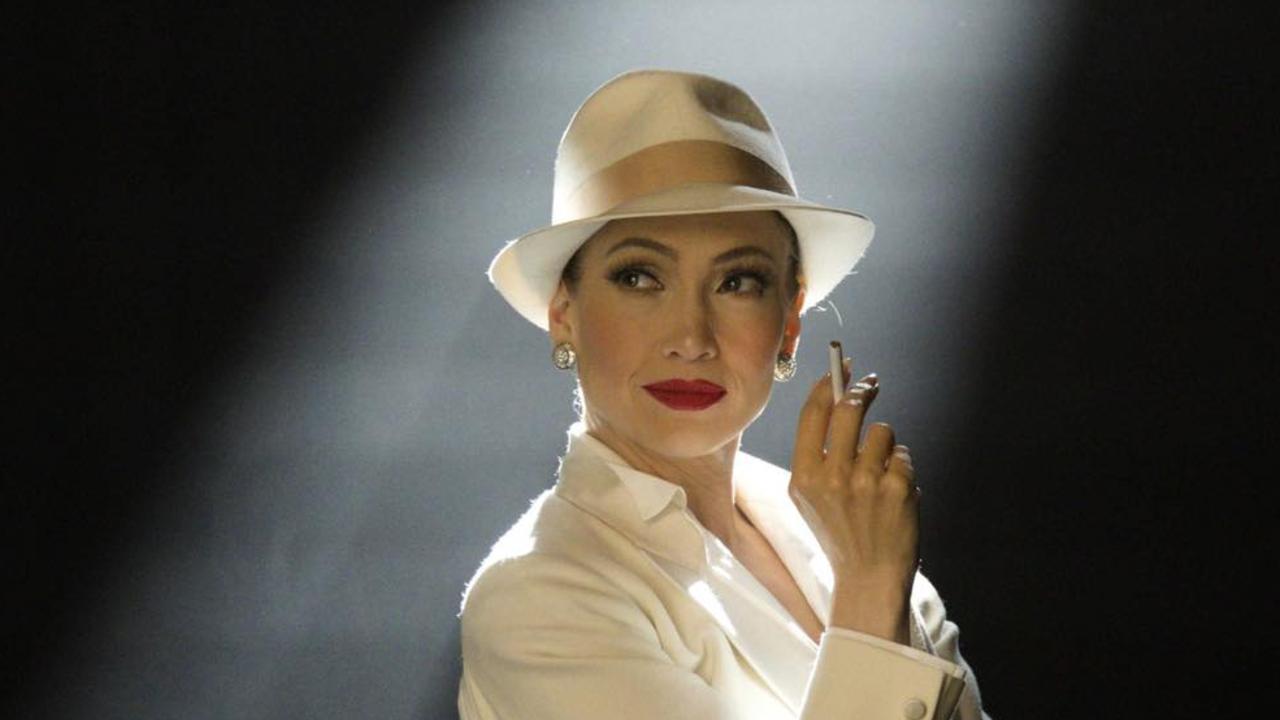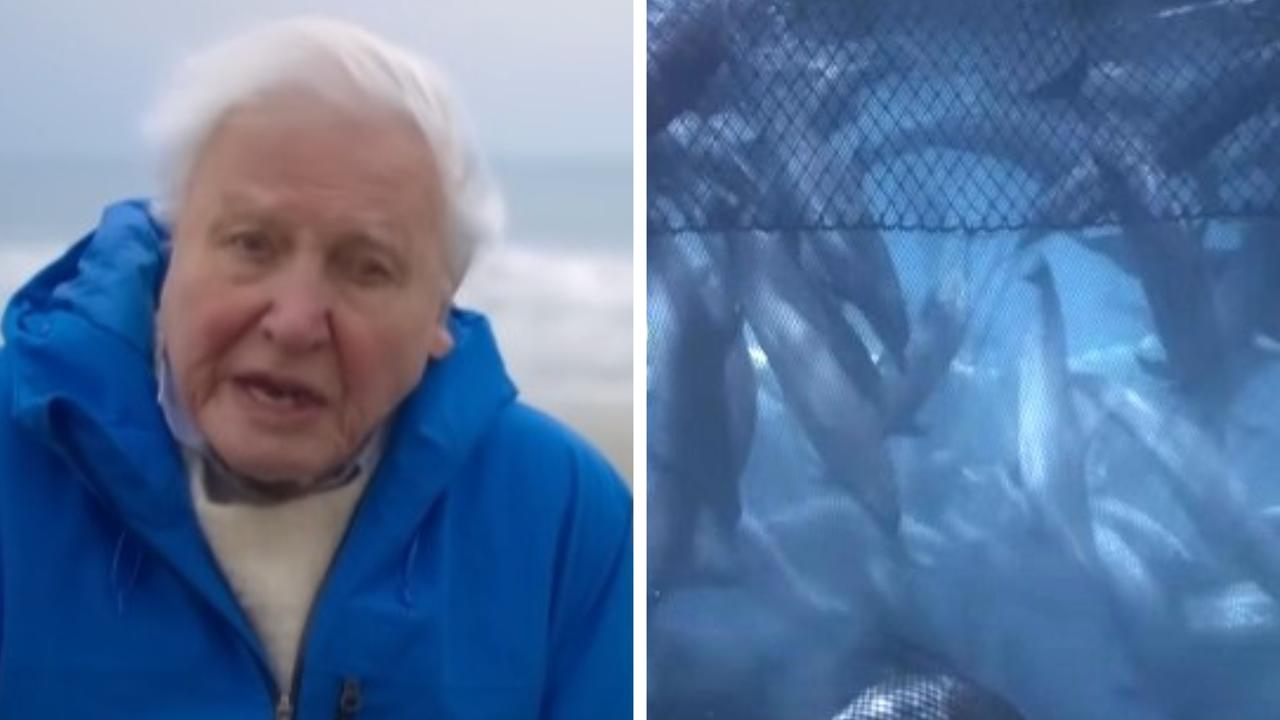Chevalier movie: Musical superstar erased by history
He was a musical superstar beloved by royalty and admired by an American president. But you almost certainly have never heard of him.
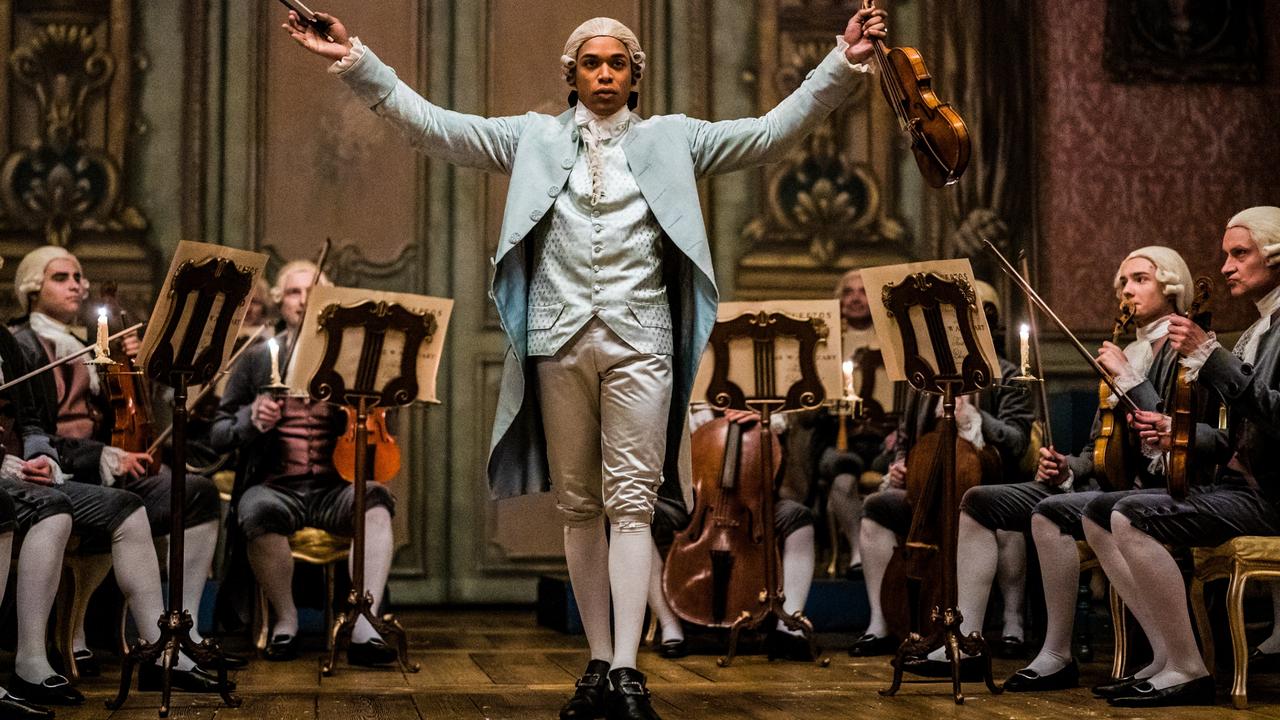
Joseph Bologne was a superstar of the music world. He rubbed shoulders with Mozart and was a favoured artist in Marie Antoinette’s inner circle. He was a violin virtuoso and had a prodigious skill for fencing.
He composed symphonies, concertos, string quartets, operas and sonatas, and was widely acclaimed during his time. He was created a chevalier of the court and was almost the conductor of the Paris Opera.
American president John Adams once called him the “most accomplished man in Europe in riding, shooting, fencing, dancing and music”.
And yet, have you heard of him?
Bologne was a bi-racial man in pre-Revolutionary France. His father was a white aristocrat and his mother an enslaved woman from a plantation in Guadaloupe. He led France’s all-Black regiment in the French Revolution, fighting for change and progress.
While Bologne was a free man and his father ensured his education in France, his Blackness meant he – and his excellence – was largely erased from history.
Now, more than two centuries after his death in 1799, Bologne is getting his moment in the spotlight, and the history books.
Chevalier is a dramatised movie of his life, starring Kelvin Harrison Jr, Samara Weaving and Lucy Boynton, and directed by Stephen Williams from a screenplay by Stefani Robinson.
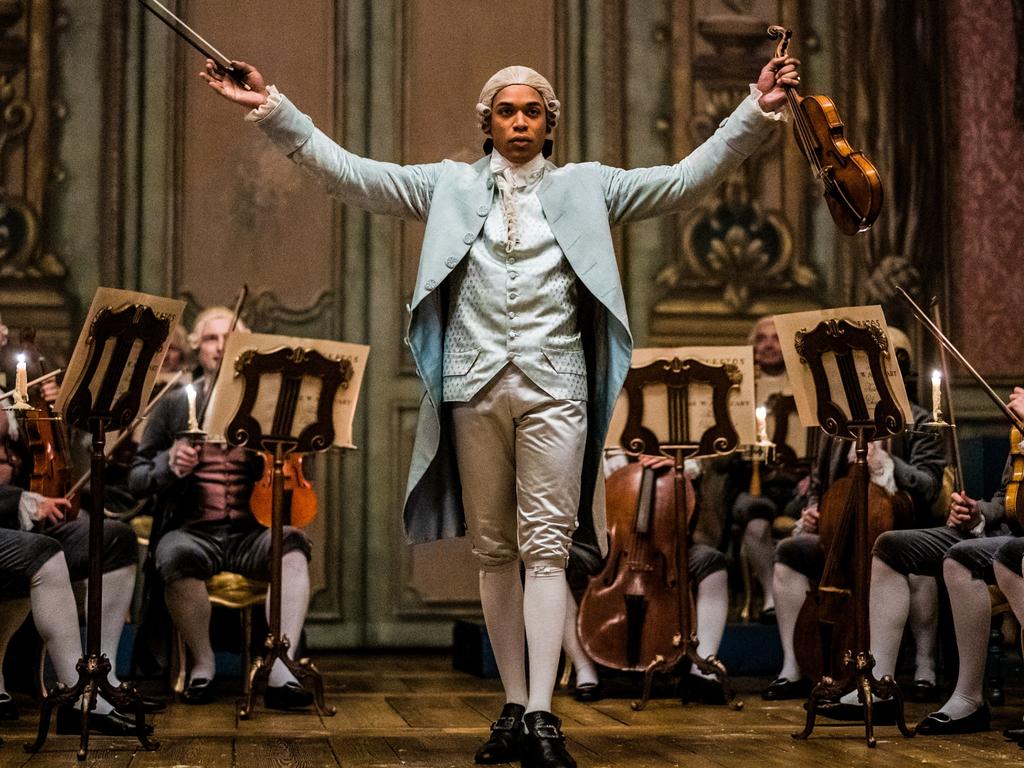
Harrison plays Bologne with soul and fire. An accomplished musician himself, Harrison told news.com.au that he didn’t know a thing about Bologne before he was approached about the role.
“I was really excited to learn about him, but I was really disappointed that I hadn’t learnt anything about him until then,” he said in an interview which took place before the US actors and writers strikes were called.
“I grew up in a musical family and I thought my dad might have known about him but he didn’t. But at the same time, it didn’t really surprise me because if you think about when he existed, why would they allow one of the biggest rock stars of that era who was Black to have that much of a light?
“They wouldn’t. My intellectual mind can process that. My heart was very hurt by it.”
Robinson, who is best known for her scripts on TV shows including What We Do in the Shadows and Atlanta, revealed she had first read about Bologne when she was 15.
“I couldn’t believe this person was real,” she said.
Robinson said she had watched many movies and set in during the 17th and 18th centuries and had never seen anyone who looked like outside of servant and enslaved characters.
“The assumption in my young brain at the time was that people of my complexion, or anyone who wasn’t white, was not ascending these cultural highs. I was never taught about him, and he seems to be integral to French history.”
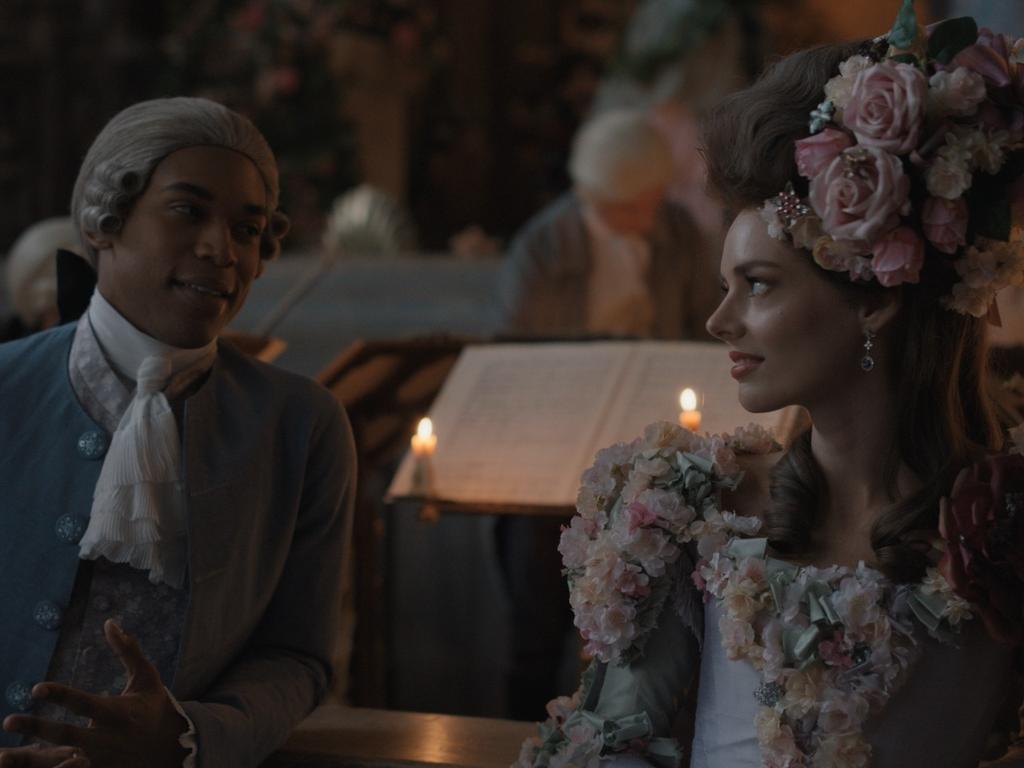
Robinson found in Bologne’s story an idea she resonated with, deeply. Even two centuries on, it’s an idea that is still relevant and contemporary. As depicted in the film, Bologne felt he had to prove his value and worth to belong where he was not wanted.
“It’s this idea of Black excellence, or you can substitute any minority in that, that I need to overachieve in order to be accepted, and how damaging that is. [Bologne] uses that as armour. For him at the beginning of the movie, it’s like ‘Well, look at what it’s gotten me, I am friends with the Queen, I’m protected, I’m safe, I’m not a slave, I am famous, I have money and I’ve transcended race at this point’.
“But the reality is what he does end up learning is that stuff only keeps you ‘safe’ for so long. Ultimately, you’re paying a bigger price and it comes at the cost of your individuality.”
Robinson said she’s had to think about that idea in relation to herself, asking questions such as why she was addicted to perfection or why she is a workaholic.
Harrison, himself a gifted musician who had to perform the violin cadenza portrayed at the top of the film, has felt the same pressures. “I felt like music was my ticket to education, when I was playing piano and trumpet. I thought, ‘Well, I can go to this school if I was good enough’. And no one was curious about knowing who I was.
“It was as if you played this really beautiful, sophisticated piece on the piano, then they thought you were smart enough or elevated enough to be among their company. So you quickly start to identify or associate your self-worth with what you offer. That’s how I manoeuvred through life and I still sometimes feel like that in this business.
“You know, ‘as long as you like my work, then maybe I get to be around’.”
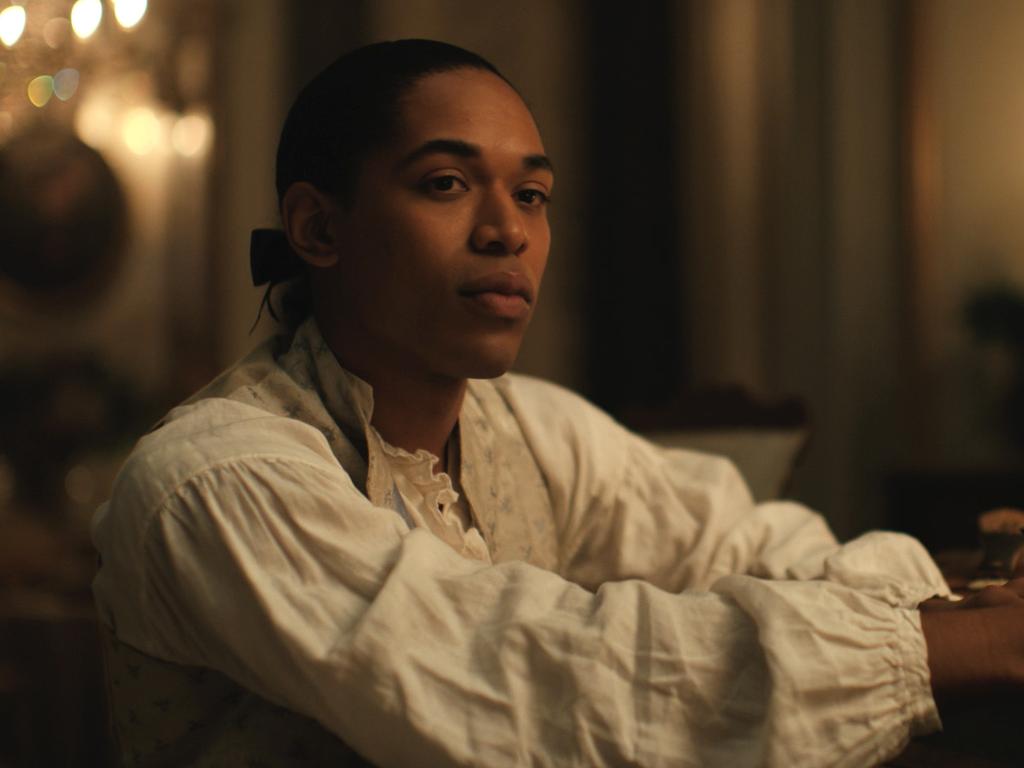
It may have rich themes and a pulsing urgency, but Chevalier is not didactic. It doesn’t exist to lecture anyone. It’s merely probing the audience while serving up in a package that is almost operatic with its heightened emotions, secret lovers, arch villains and betrayals both personal and social. And Bologne’s visceral compositions are laced throughout the soundtrack.
Weaving said, “There’s a real human rights story but there’s also a lovely escapist romantic tale.”
While Bologne’s story is being centred in Chevalier, that impulse to erase his accomplishments is not consigned to history. Robinson referenced political efforts in the US to restrict schools from talking about race and Black history, including attempts to prevent students learning about why civil rights icon Rosa Park sat at the front of the bus in protest.
“There’s an active push to erase these stories, so [these stories] are incredibly urgent. I couldn’t be prouder that this movie is coming out in a time when we’re still having these conversations that are so blatant.”
Harrison added that when historical figures such as Bologne vanish from history before they can be made an icon it deprives marginalised people a chance to look up to them and see the possibility of fulfilling their own dreams and destinies.
Chevalier is in cinemas now





